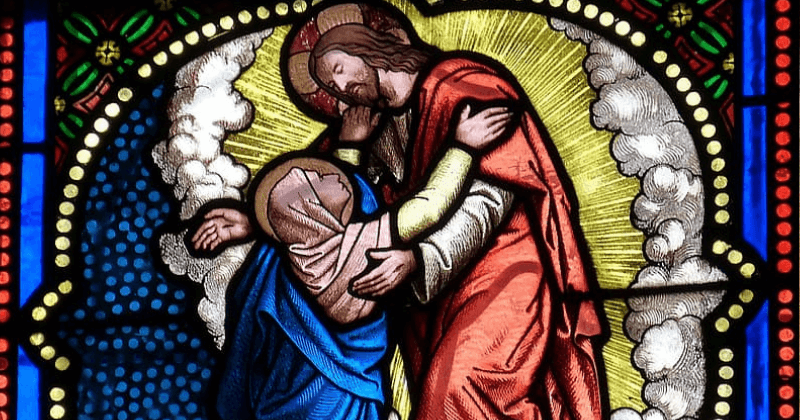Forgiving others is now just seen as a regular part of Western culture. It’s hard for us to imagine that in many other societies throughout history, vengeance and blood feuding were the more popular ideals, they were truly seen as morally good, as ways of preserving your honor when wronged. This was certainly true of Viking culture, but it was true everywhere in the ancient Greek, and Roman world as well. It has to be said that there is something logical about revenge. If I’ve been wronged, and equilibrium can be established by inflicting on you or those you love an equal harm, indeed, there’s a certain logic in inflicting greater harm, after all you initiated the wrong, you therefore deserve more than the wrong done to me. This is the logic of generational blood feuding, it re-establishes good order.
If we’ve come to believe in forgiving people who have wronged us, that’s only because this is one of Christianity’s weird gifts to Western society. In a day when cancel culture is increasingly common, I reckon we do well to remember that gift, it comes from Jesus, of course. Back in Matthew chapter 18, we’re told that Peter one day came to Jesus and said, “Lord, how many times shall I forgive my brother or sister when they sin against me? Up to seven times?” Jesus answered, “I tell you not seven times, but 77 times,” which is just a way of saying, “More times than you could imagine.” This prompts Jesus to then tell one of his really famous parables.
A man owed a king a huge sum of money, he said he was unable to pay, so the king, in his mercy, forgave the debt. Happy days. But then, Jesus continued, this man meets a fellow servant who owed him a relatively small amount, the servant begged him for relief, but he refused to extend the same mercy toward the servant that the king had granted to him. The king, then of course, hears about it, calls the man in, declares him to be a wicked servant, and then the key line is, “I cancelled all that debt of yours because you begged me to, shouldn’t you have had mercy on your fellow servant just as I had mercy on you?” The king threw him in jail. Right here, Jesus cancels the logic of vengeance, He cancels cancel culture, He replaces it with an entirely different logic, an entirely different cultural outlook.
The new logic begins not with what we’ve done to each other, but the nature of God, every one of us has had a debt cancelled, if we have asked God for mercy. God grants that forgiveness as a free gift. If that reality becomes the animating principle of our life, which it ought to for Christians, it is unthinkable that we wouldn’t forgive those who seek our forgiveness, just as God forgave us when we sought His mercy. Following this teaching of Jesus, the Apostle Paul in one of his later letters, makes the point with crystal clarity. “Bear with each other,” he writes in Colossians 3, “and forgive one another, if any of you has a grievance against someone, forgive as the Lord forgave you.” There’s the logic, God’s forgiveness leads to our forgiving each other.
Jesus insisted that when humans forgive one another they’re participating in the very mind of God.
The vengeance ethic tries to establish an equilibrium by repaying someone with the harm they’ve done to us or with worse harm. Public cancel culture operates with a similar logic. The forgiveness ethic seeks to reflect something even more fundamental, the love and mercy of God Himself. There may be good practical reasons to avoid the cycle of violence characteristic of blood feuding. I’m sure there are, but Christianity provides a deeper rationale than simply forgiveness works. Jesus insisted that when humans forgive one another they’re participating in the very mind of God.
By John Dickson
The Vikings II
Want to hear the rest of the episode?
Check out episode 66: “The Vikings II”












































